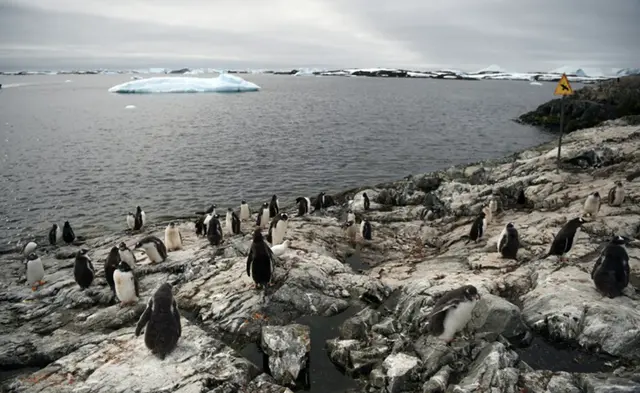The world's largest marine reserve aimed at protecting the pristine wilderness of Antarctica will be created after a "momentous" agreement was finally reached Friday, with Russia dropping its long-held opposition.
The deal, sealed by the Conservation of Antarctic Marine Living Resources (CCAMLR) at an annual meeting in Hobart after years of negotiations, will see a massive US and New Zealand-backed marine protected area established in the Ross Sea.
It will cover more than 1.55 million square kilometres (600,000 square miles) -- roughly the size of Britain, Germany and France combined -- of which 1.12 million square kilometres will be a no fishing zone.
"The proposal required some changes in order to gain the unanimous support of all 25 CCAMLR members and the final agreement balances marine protection, sustainable fishing and science interests," New Zealand Foreign Minister Murray McCully said.
"The boundaries of the MPA, however, remain unchanged."
The Ross Sea is one of the last intact marine ecosystems in the world, home to penguins, seals, Antarctic toothfish, whales and huge numbers of krill, a staple food for many species.
It is considered critical for scientists to study how marine ecosystems function and to understand the impacts of climate change on the ocean.
Moscow was the last government opposing the move, largely due to concerns over fishing rights, after China offered its support last year.
"We had a lot of talks with them. Secretary (John) Kerry reached out to Russian President (Vladimir) Putin and (Foreign Minister Sergei) Lavrov and I think that helped a great deal to convince Russia to come on board," Evan Bloom, head of the US delegation at the meeting, told AFP.
"This decision is very important not just for the Antarctic but for efforts to promote world marine conservation."
Moscow has signalled more commitment to conservation in recent times, designating 2017 as the Year of Ecology. It moved in August to significantly increase the size of a protected zone around Franz Josef Land in the Arctic.
(AFP)
 简体中文
简体中文

